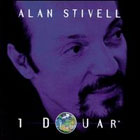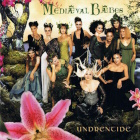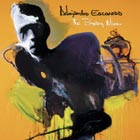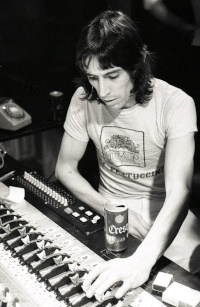

John Cale - Producer
Searching for sound
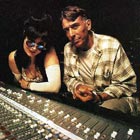
Cale has been busy producing artists since the late Sixties, when he captured the raw sound of The Stooges and the teutonic tones of Nico.
Production jobs came and went (and sometimes fell through), but he was an in demand guy for getting the job done by acts who wanted to show off their cool with having "Producer: John Cale" in the credits section of their single, EP or album.
- Last added: The Sick F-cks unreleased EP (1978)
"I really love producing other artists. I love helping someone achieve his goals. I always try to approach it from the point of view, "What would a Zen master do in these circumstances?' And that is not to give the artist a direct answer to all his questions, but to suggest a solution by other means. You've got to stick to what you believe in. It might be lucrative for me to work with a particular personality, but if I don't feel sympathetic to what he's doing, I'm just letting myself down. And you lose all your credibility if you do that."
Producing overview
He hits the ground running with the production of the self-titled debut album by The Stooges in 1969. He got the job through Elektra owner Jac Holzman:
"Jac took me to Detroit to see the MC5 recording live. The opening band was the Stooges... I fell in love with Iggy's character and personality as a performer. The challenge was to get that magic and impish behavior onto a record."
He lands a job at record label Columbia to work for their project to gain at foothold at the all new Quadrophonic sound. It fails to take off, after which Cale joins Warners as a staff producer in 1971.
He moves from New York to Los Angeles. Warners hopes to make a quadrophonic version of A Clockwork Orange by Stanley Kubrick. It turns out that the costs of refitting the movie theatres for the new sound are too high to make it happen. Also, Cale never was not compatible with big company big bucks producing methods and he left in 1975. He has been freelancing ever since.
In the Seventies he produced the classic Horses album by the Patti Smith Group in 1975:
"It was not clear what persona this record was going to have until I had her improvise against herself. At that point something clicked. There was a track she did where she read poetry against poetry and there were two lines going on and I had her mix it. When Clive Davis [head of Arista, the record label - HW] heard that, he said, 'Hey, you've got a collaborator.' And that's exactly the thing that made that record different. She was really a poet and you had to respect the fact that she was not a musician but out of sheer bravado and desire was making herself into a rock-and-roll singer and basically wanted to be Keith Richards. But I was awed that she had gotten all that input from Bob Dylan and Lou Reed to some extent. She had a Welsh Methodist idea of improvisation, in that it was like declamation. Lou was kind of psychological, but a lot of Patti's impulses came from preaching."
In 1977 punk and New Wave bands like Squeeze, Sham 69 and Menace record seminal tracks under his supervision. He is one of the co-founders of the Spy Records label and some of his production jobs end up as singles and EPs on the label, which shuts its doors in 1980.
"Spy Records was a toy of mine for a long time. Its creation made the recording of Sabotage/Live possible, and we put out a single by the rock critic Lester Bangs and an EP by the Model Citizens."
Nico called upon him three times to produce one of her albums: Desertshore, The End, and Camera Obscura. On producing Desertshore:
"She cried when it was finished. She did that with the others too."
In the Eighties he produced New Wave groups like Made for TV and Belgian singers of the Lio variety. He has no fond memories of working with anarchic English indie dance band Happy Mondays:
"A very quick nightmare. I had just stopped drinking and everything else. The band complained that I was on a health kick and that all I did was sit around eating tangerines all day long."
The Nineties found Cale producing the New Zealand act Garageland, Corsican revival band Les Nouvelles Polyphonies Corses, Siouxsie & The Banshees, the Breton singer-songwriter Alan Stivell, and Goya Dress. Singer Astrid Williamson of this Scottish alternative rock band remembers:
"The sessions for the album seemed to move very fast. It drove me nuts. I think I shouted or possibly cried about it. Then John caught me red-handed trying to redo a vocal, 'Katie Stood On The Benches'. 'Aargh, Astrid, you wouldn't be you if you didn't do this stuff.' Horrifying."
He made the British musical ensemble Mediæval Baebes sound like 21th Century angels. He added non-medieval instruments, including saxophone and electric guitar to spice things up a little. Band member Katharine Blake:
"We weren't very happy with what Cale did because he was very much doing what the record company told him to do, which was to try and make it sound all modern."
His latest finished production job was The Boxing Mirror, an album by American rock musician Alejandro Escovedo, released on May 2, 2006.
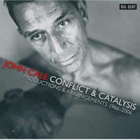
Conflict & Catalysis: Productions & Arrangements 1966-2006
Twenty Cale produced tracks can be found on the John Cale - Conflict & Catalysis: Productions & Arrangements 1966-2006 album.
More?
It's hard to keep track of everybody he had his hands on.
Any additions? Use the form.
Albums, EP's and singles produced by Cale
| Artist | Album | Year |
|---|---|---|
| Ambulance LTD | (never released) | 2007 |
| Art Bergmann | Crawl With Me | 1988 |
| Chistina | Disco Clone | 1978 |
| Chunky, Novi and Ernie | Chunky, Novi and Ernie | 1974 |
| Element of Crime | Try to be Mensch | 1987 |
| Alejandro Escovedo | The Boxing Mirror | 2006 |
| Louise Feron | Amour Fou | 1991 |
| Louise Feron | Louise Feron | 1991 |
| Garageland | Feel alright | 1997 |
| Goya Dress | Glorious | 1996 |
| Goya Dress | Rooms | 1996 |
| Happy Mondays | Squirrel And G-man Twenty Four Hour Party People Plastic Face Carnt Smile (White Out) | 1986 |
| Happy Mondays | Loads (& Loads More) | 1995 |
| Harry Toledo & The Rockets | Harry Toledo & The Rockets | 1977 |
| David Kubinec | Some Things Never Change | 1978 |
| Larry and Tommy | Yo-Yo | 1968 |
| Lio | Pop Model | 1986 |
| Made For TV | So Afraid of the Russians/Unknown Soldier | 1983 |
| Maids of Gravity | The First Second | 1996 |
| Marie et Les Garçons | Attitudes / Re-Bop | 1978 |
| Mediæval Baebes | Undrentide | 2000 |
| Menace | I Need Nothing | 1978 |
| Model Citizens | Shift the Blame | 1979 |
| Modern Guy | Une Nouvelle Vie | 1981 |
| The Modern Lovers | The Modern Lovers | 1972 |
| Necessaries | You Can Borrow My Car / Runaway Child | 1979 |
| Nico | Desertshore | 1970 |
| Nico | The End... | 1974 |
| Nico | Camera Obscura | 1985 |
| Nico | The Frozen Borderline 1968-1970 | 2007 |
| Les Nouvelles Polyphonies Corses | In Paradisu | 1996 |
| Los Ronaldos | Sabor Salado | 1990 |
| Sham 69 | I Don't Wanna / Red London / Ulster | 1977 |
| Siouxsie & The Banshees | The Rapture | 1994 |
| Patti Smith Group | Horses | 1975 |
| Snatch | Shopping For Clothes / Joey / Red Army | 1980 |
| Squeeze | Packet of Three | 1977 |
| Squeeze | Squeeze | 1978 |
| Squeeze | Wrong Way | 1979 |
| Alan Stivell | I Douar | 1998 |
| Stooges | Stooges | 1969 |
| The Jesus Lizard | The Jesus Lizard | 1998 |
| The Sick F-cks | (never released) | 1978 |
| Various Artists | Sixteen Candles | 1984 |
| Various Artists | Caged/Uncaged | 1993 |
| Ventilator | desert station frequency | 1999 |
| Big Vern | Lullabies for Lager Louts | 1989 |
| Jennifer Warnes | Jennifer | 1972 |
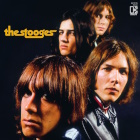

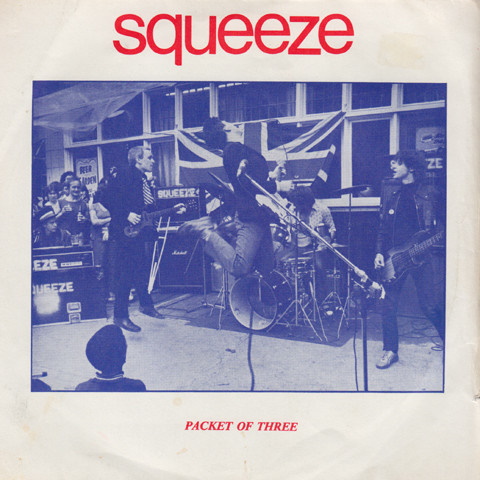
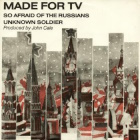
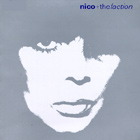
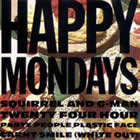
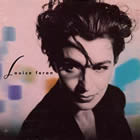 >
>